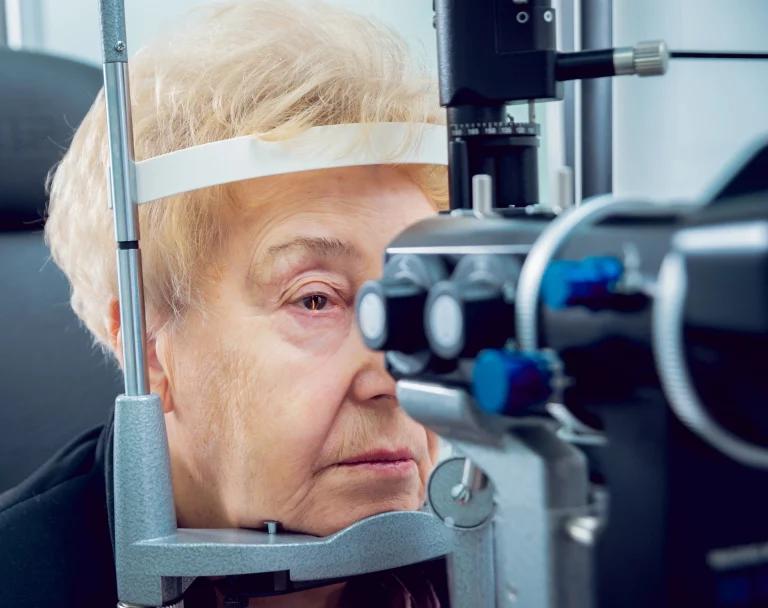Everyone knows that eyes are essential. They’re one of the first things people notice about you and they need to be taken care of properly if you want to maintain healthy eyesight. Eating the right foods is a crucial part of maintaining healthy eyesight. Read on for the best foods that you should add to your diet if you want to keep your eyes healthy and strong.
1. Salmon
Salmon is a great source of omega-3 fatty acids, which are essential for eye health. Omega-3 fatty acids can help reduce the risk of dry eye, macular degeneration, and glaucoma. The body cannot produce omega-3 fatty acids on its own, so they must be obtained through diet or supplements.
Not a fan of salmon? No problem! You can also get omega-3 fatty acids from other oily fish like tuna, mackerel, herring and sardines. Fatty fish contains essential fatty acids, specifically omega-3s. You can also find them in flaxseeds, walnuts, and tofu. You can also take a fish oil supplement or a flaxseed oil supplement to ensure that you’re getting enough omega-3 fatty acids.
While omega-3 fatty acids are important for eye health, it is important to speak with a doctor before beginning supplements. This is because omega-3 fatty acids can interact with certain medications.
2. Leafy Green Vegetables
Green leafy vegetables are packed with vitamins A, C, and E, all of which are important for healthy eyes. Vitamin A is especially important because it helps to prevent night blindness and dry eyes. Try adding spinach, kale or collard greens to your next meal.
Spinach is packed with nutrients like lutein and zeaxanthin, which can help protect against cataracts and macular degeneration. Adding just one cup of spinach to your diet every day can make a big difference in your eye health! If you don’t like leafy greens, garden peas or avocados are also a good source of these nutrients.
3. Eggs
Eggs are an excellent source of nutrients that are important for eye health, they include vitamin A, lutein and zeaxanthin. Vitamin A is essential for vision and eggs are one of the few foods that contain it in a form that the body can easily use. Vitamin A helps produce pigment in the retina, which is necessary for good vision. The yolk of an egg contains high levels of zeaxanthin and lutein, both of which are carotenoids that help to filter out harmful blue light and ultraviolet light. These nutrients are found in the egg yolk, so it is important to consume the whole egg to get the full benefit. Eggs also contain omega-3 fatty acids, which have been shown to reduce the risk of age-related macular degeneration (AMD). In addition to being good for the eyes, eggs are a low-calorie food that is high in protein and other nutrients, making them a healthy choice for breakfast or any meal. Try scrambling an egg or two into your next breakfast wrap or a veggie omelette.
4. Citrus Fruits
Citrus fruits like oranges and lemons are rich in vitamin C, another nutrient that is good for your eyesight. Vitamin C helps prevent cataracts and protects your cornea from damage. In addition to citrus fruits, tomatoes, strawberries, bell peppers, and broccoli are also good sources of vitamin C.
Vitamin C is essential for the production of collagen, which helps to keep the skin and blood vessels around the eyes healthy. Citrus fruits are also a good source of flavonoids, which are antioxidants that help to protect the eyes from damage caused by free radicals. In addition, citrus fruits contain limonene, a compound that has been shown to reduce the risk of age-related macular degeneration. So, next time you’re looking for a way to improve your eye health, reach for a citrus fruit. Add an orange or grapefruit to your breakfast or lunch for a boost of vitamin C.
5. Nuts and seeds
Nuts and seeds like almonds, legumes and sunflower seeds are a good source of nutrients that are important for eye health, they contain vitamin E, zinc and omega-3 fatty acids.
Vitamin E is a powerful antioxidant that can help to protect the eyes from damage caused by free radicals. Zinc is essential for the development and function of the retina and it also helps to protect against age-related macular degeneration. Zinc is also found in oysters, crabmeat, lean beef, pork tenderloin, wheat germ and whole grains. Omega-3 fatty acids are thought to help reduce inflammation throughout the body, including in the eyes.
In addition, nuts and seeds contain lutein and zeaxanthin, two phytochemicals that are concentrated in the macula of the eye. Lutein and zeaxanthin can help to filter out harmful blue light rays and protect against macular degeneration.
For all of these reasons, nuts and seeds are an important part of a healthy diet for people of all ages. Add a handful of nuts or seeds to your yoghurt or oatmeal for a crunchy addition with some extra benefits.
6. Sweet Potatoes
Sweet potatoes are rich in beta carotene/vitamin A, which helps improve night vision and prevents dry eyes. Sweet potatoes are also full of antioxidants, which can help protect against cataracts. You can also find beta carotene in carrots, squash, cantaloupe, kale, spinach, apricots, peas, red pepper flakes and green beans. In addition, sweet potatoes contain lutein and zeaxanthin, two antioxidants that help to filter out harmful blue light. Studies have shown that these compounds can help to reduce the risk of age-related eye disease, a condition that can lead to vision loss. So if you’re looking for a way to support your eye health, add some sweet potatoes to your diet. Eat sweet potatoes roasted, baked or mashed for the best nutritional benefits.
7 . Green Tea
Green tea has been enjoyed for centuries in Asia and its popularity has spread to the West in recent years. Green tea is made from the leaves of the Camellia sinensis plant.It is rich in antioxidants that can offer numerous health benefits. One of these benefits is improved vision. The antioxidants in green tea can help to protect the eyes from damage caused by free radicals, and also to help reduce inflammation. In addition, green tea has been shown to lower the risk of cataracts and macular degeneration, two common age-related eye conditions. So if you’re looking for a way to improve your eye problems, consider adding a cup of green tea to your daily routine.
8. Oysters
Oysters are a type of shellfish that is prized for their nutritional value and its delicate flavour. In addition to being a good source of protein, oysters are also rich in zinc, iron and selenium. These minerals are essential for maintaining the health of the immune system, the skin and the eyes. Studies have shown that zinc plays a particularly important role in good eye health, protecting the eyes against age-related macular degeneration. Selenium meanwhile, helps to reduce the risk of cataracts. Oysters also contain omega-3 fatty acids, which have been shown to improve vision and reduce inflammation. For all these reasons, incorporating oysters into your diet is a great way to promote good eye care.
9. Water
It’s important to drink plenty of water to keep your whole body healthy—including your eyes! Drinking eight glasses of water a day will help to keep your eyes hydrated and prevent dry eye syndrome.
Good nutrition is essential for good vision and eye health. By incorporating these healthy foods into your diet, you can help improve your eyesight and protect your vision. If you have any concerns about your eye health, be sure to see an ophthalmologist or other qualified eye care professional for a comprehensive eye exam.
About NowPatient
NowPatient’s online services are available in the US and UK. We help you manage your prescriptions, doctor appointments, test results, health risks and a lot more, all in one place for FREE. US prescriptions are delivered across all 50 states by our network of pharmacy providers dispensing FDA-approved medications billed through cash, commercial insurance or Medicaid. UK NHS and private prescriptions are delivered FREE of charge across England & Wales by our UK regulated Pharmacy.
Sources
Medical Disclaimer
NowPatient has taken all reasonable steps to ensure that all material is factually accurate, complete, and current. However, the knowledge and experience of a qualified healthcare professional should always be sought after instead of using the information on this page. Before taking any drug, you should always speak to your doctor or another qualified healthcare provider.
The information provided here about medications is subject to change and is not meant to include all uses, precautions, warnings, directions, drug interactions, allergic reactions, or negative effects. The absence of warnings or other information for a particular medication does not imply that the medication or medication combination is appropriate for all patients or for all possible purposes.







